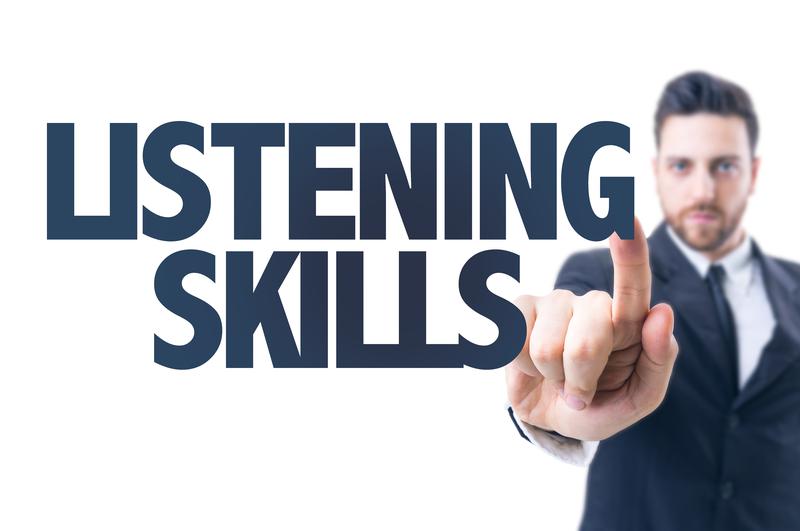
Even if you are aware of flaws in your communication skills, it can be difficult to drastically change your conversation style. Some of us are simply prone to interrupt or let our minds wander while others are talking. There are steps you can take to improve your listening skills that will allow you to build new habits over time.
If possible, ask a friend or peer for candid feedback about your listening and communication style. Then make a resolution to commit to better listening and engagement. These six steps can help you become a better listener, and subsequently a better communicator.
1. Avoid Distractions
You might not have the luxury of conducting every conversation in a soundproofed conference room. So, take a minute to shut down and remove distractions. Besides noise from phones and nearby music, avoid visual distractions like busy areas where coworkers pass through.
Perhaps most importantly, clear mental distractions. Prior to an important meeting, consider taking a meditational breathing moment to quiet the brain.
2. Be Prepared with Expectations
Are you listening to employees who want to impress you or prove that they’ve been busy, or a peer persuading you on a critical strategy change? Listening is easier when you know what the other person wants to accomplish. If you aren’t clear on the motivation for the discussion, feel free to ask outright and set goals.
3. Everyone’s Body Language Matters
Listening skills include non-verbal skills such as reading posture and ignoring the speaker’s nervous tics. Your own body language matters, too:
- Avoid slouching
- Face the speaker
- Make eye contact
- Sit comfortably
If you’re staring out the window with your arms crossed, the speaker might get nervous or digress while trying to capture your attention.
4. Resist the Urge to Interrupt
Business conversations can easily become a game of interrupting one-upmanship. You might have a burning question, a point to clarify, or you may simply feel sure that you have already reached a conclusion or answer to the topic. However, you hurt your reputation and relationships by interrupting too much.
Use a notepad to jot down quick thoughts if you don’t want to lose a response. If you want to interrupt because the speaker is off on a tangent, be patient and do so politely without interrupting the middle of a sentence.
5. Follow-up Questions and Thoughts
Even if you listen attentively, it’s not uncommon to leave a meeting and realize that you didn’t absorb the information very well. Ironically, this can happen because we’re afraid to ask clarifying questions out of fear that we will appear inattentive or uninformed. In reality, it’s nearly impossible to offend someone by asking them to repeat themselves or elaborate on a complex thought.
Great follow-up responses to demonstrate improved listening skills include:
- Paraphrasing the speaker’s message for confirmation
- Asking the speaker to clarify something
- Asking for a concrete example of a general thought
- Acknowledging the speaker’s main points before changing the subject
6. Listen and Retain Information
Listening skills are only as good as what you get out of them. During the talk, make brief notes to help burn important details into your brain. This helps most people with retention even if the notes are immediately discarded. It also shows the speaker that you value their input.
After the meeting, later in the day, or even weeks or months afterward, you can demonstrate your listening and communication skills by referring the conversation later. Over time, this builds trust and confidence with your colleagues.




